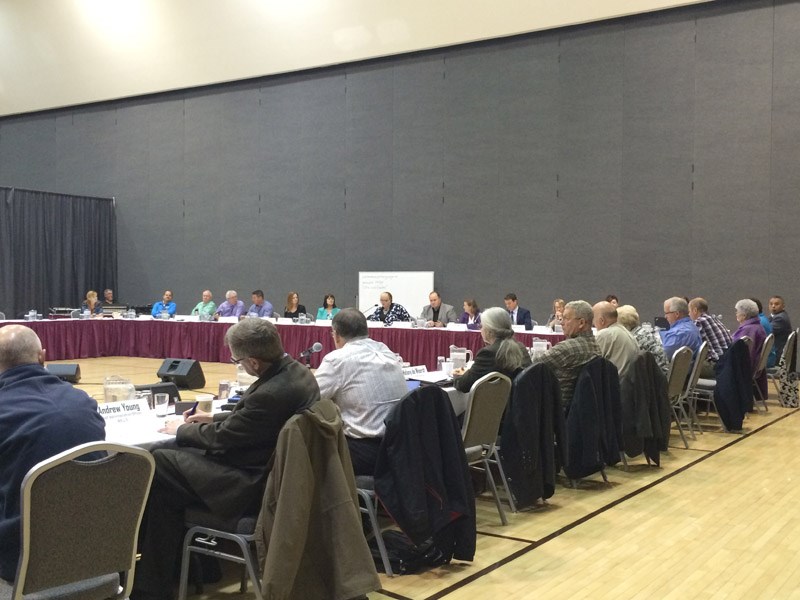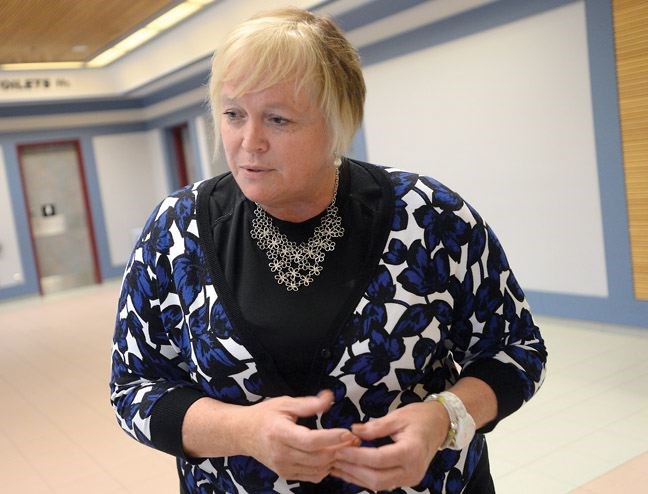Representatives from 30 northern communities gathered for a first roundtable in the North Central Local Government Association's 62-year history.
The group of mayors, regional chairs and chief administrative offers met at Prince George's Civic Centre Friday for the day-long discussion, focusing on three key issues: economic development, social responsibility and environmental stewardship.
"I thought it was time that we got together as a group of northern mayors and regional district chairs to talk about what's going on in our region and things that we're struggling with and common issues, common concerns and things that we're also doing well and looking at best practices," said Mayor Lyn Hall, who co-chaired the event.
By the end of the day, the group planned to have a few focused ideas to pursue as a collective. That way, together, the region can take a "concentrated approach" to both provincial and federal governments to advocate for involvement.
"We're a strong voice and we have issues and we as a group want to and need to be heard," said Hall during an afternoon break at the Civic Centre.
“It’s about our regional issues,” said NCLGA president Laurey Roodenburg. “So that when everyone talks to the ministers, to the (federal government) they have that common message they can use.
“We have 42 members, they're not all the size of Prince George so to be able come up with hose common regional themes is huge.”

Hall highlighted the work of Smithers as just one example of a northern community actively tying economy with environment.
"When we do projects that are supporting economic development we're also supporting our aim to reduce our use of fossil fuels and ensure that we're really developing our community in a way that's going to be future proof, the biggest of which is a changing climate, which is affecting our region very profoundly," explained Smithers Mayor Taylor Bachrach, adding its $6-million airport terminal expansion is one such project that tries to tie the two goals.
Two of Smither's main industries - tourism and forestry - have been dramatically by these changes. The big challenge for northern communities, Bachrach said, is the boom and bust economy attached to natural resource development.
"We see more and more that the fates of our communities are tied to international commodity markets and to decisions that are made a long ways away from our community," he said.
The question becomes how can communities protect themselves while also grabbing onto international opportunities, he said.
"I think that's really a challenge around diversification, it's around ensuring that we're supporting small business and enterprises in our community and making sure that we're creating communities," said Bachrach, praising Quesnel Mayor Bob Simpson's point that municipalities must focus on areas in their power to change and also create places where people want to live.
Bachrach found the conversation around the 52-person table more dynamic than what's he's come to expect at the BC Mayors' Caucus.
"I think maybe it's because there are more similarities and we really feel a connection to each other's communities," he said. "If we can find things that we share in common and if we can speak together with one voice, we're going to be far more effective than as small individual municipalities."



